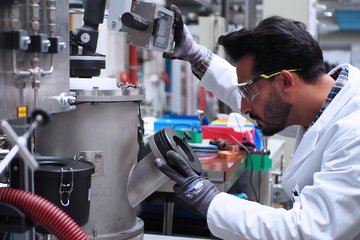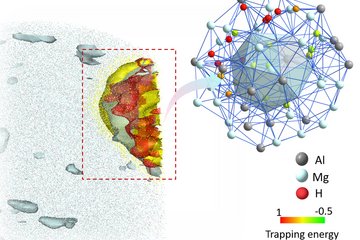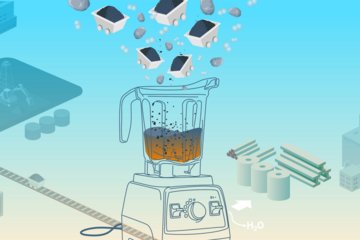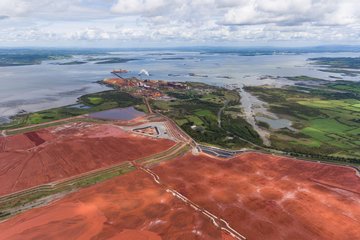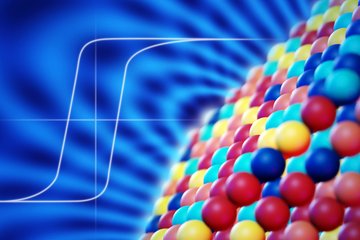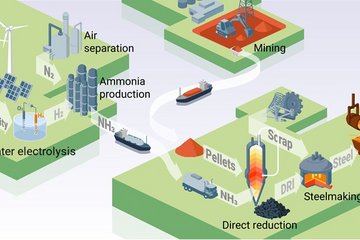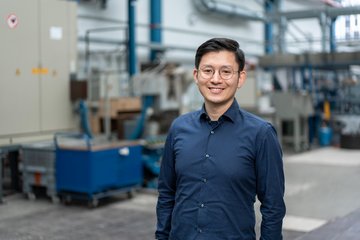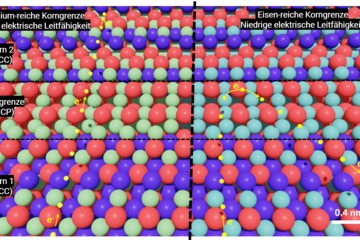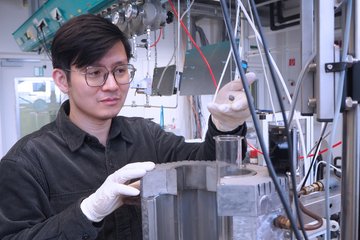Alle Typen
1181.
Vortrag
Asymmetric Line Segregation at Faceted Si Grain Boundaries. TMS 2019 Annual Meeting & Exhibition, San Antonio, TX, USA (2019)
1182.
Vortrag
Atomic scale analysis of grain boundary deuteride growth front in Zircaloy-4. TMS 2019 Annual Meeting and Exhibition, San Antonio, TX, USA (2019)
1183.
Vortrag
Solute segregation effect at planar defects during creep of CoNi- & Co-based superalloys. TMS 2019 Annual Meeting and Exhibition, San Antonio, TX, USA (2019)
1184.
Vortrag
Understanding deformation mechanisms in superalloys through atomic scale microanalysis. TMS 2019 Annual Meeting & Exhibition, San Antonio, TX, USA (2019)
1185.
Vortrag
Compositional Lattice Defect Manipulation for Microstructure Design. The Bauerman Lecture 2019, Department of Materials, Imperial College London, Royal School of Mines, London, UK (2019)
1186.
Vortrag
Correlation of Microstructures and Thermal Conductivity of the Thermoelectric Material Ag16.7Sb30Te53.3. North American Thermoelectric workshop, Northwestern University, Eanston, Chicago, IL, USA (2019)
1187.
Vortrag
The thermal conductivity of Ag16.7Sb30Te53.3 bulk thermoelectric with high density of planar faults. 38th/4th International and Asian Conference on Thermoelectrics , Gyeongju, South Korea (2019)
1188.
Vortrag
Introduction to (3D)-EBSD (what can EBSD do for you ?). Bruker EDS User Meeting, Berlin, Germany (2019)
1189.
Vortrag
Obtaining constitutive parameters for a physics-based crystal plasticity model from macro-scale behavior. International Conference on Plasticity, Damage, and Fracture , Panama City, Panama (2019)
1190.
Vortrag
Metastable high-entropy alloys: design, structure and properties. 2nd International Conference on High-Entropy Materials (ICHEM 2018), Jeju, South Korea (2018)
1191.
Vortrag
Transition in boron boundary cohesion from effectiveness to harmfulness with respect to application temperatures: high-entropy alloys and Ni-based superalloys. 2nd International Conference on High-Entropy Materials (ICHEM 2018), Jeju, South Korea (2018)
1192.
Vortrag
Local and global alloy design: metastability of single lattice defects and alloys with extreme metastability. MIT Workshop on Alloy Design, Cambridge, MA, USA (2018)
1193.
Vortrag
Process and Alloy Design for In-Situ Precipitation Strengthening of Al–Sc Alloys During Laser Metal Deposition. Metal Additive Manufacturing Conference, Vienna, Austria (2018)
1194.
Vortrag
Designing a novel Fe–Ni–Al–Ti Maraging steel tailor-made for Laser Metal Deposition. Metal Additive Manufacturing Conference, Vienna, Austria (2018)
1195.
Vortrag
Correlation of crystallographic defects in Ag16.7 Sb30Te53.3 thermoelectric bulk materials with their thermoelectric properties. MRS Fall Meeting & Exhibit, Boston, MA, USA (2018)
1196.
Vortrag
TEM/STEM Investigations of the TRIP Effect in a Dual-Phase High-Entropy Alloy. MRS Fall Meeting, Boston, MA, USA (2018)
1197.
Vortrag
Grain boundary segregation and transformation in complex alloys. MRS Fall Meeting, Boston, MA, USA (2018)
1198.
Vortrag
Segregation and Transformation at Lattice Defects in Complex Alloys: A Microstructure Design Toolbox. MRS Fall Meeting 2018, Boston, MA, USA (2018)
1199.
Vortrag
Microstructural Design to Improve the Mechanical Properties of an Interstitial TRIP-TWIP High-Entropy Alloy. MRS Fall Meeting , Boston, MA, USA (2018)
1200.
Vortrag
Revealing fracture mechanisms of medium manganese steels with and without delta-ferrite. 6th International Conference on Advanced Steels (ICAS 2018), Jeju, South Korea (2018)
